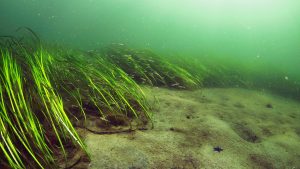Search results for: Best%20Essay%20Writing%20Service%20%F0%9F%8E%93www.WriteMyPaper.online%20%F0%9F%8E%93Write%20Essay%20Cheap%20-%20Write%20Essay%20Fast
Salt Marshes: Biological Controls of Food Webs in a Diminishing Environment
Salt Marshes: Biological Controls of Food Webs in a Diminishing Environment Valiela, I., D. Rutecki, and S. Fox Journal of Experimental Marine Biology and Ecology, Vol. 300, pp. 131-159, 2004 WHOI-R-04-003
Read MoreRestoring Eelgrass: Identifying best practices for a seed-based approach
Restoring Eelgrass: Identifying best practices for a seed-based approach Principal Investigators Jill Carr, University of Massachusetts Boston Forest Schenck, Massachusetts Division of Marine Fisheries Alison Frye, Salem Sound Coastwatch Abstract Eelgrass (Zostera marina) is a critical marine habitat that provides a myriad of ecosystem services, yet its extent continues to decline across the Massachusetts coastline…
Read MoreHuman Dimension of Rebounding Population of Seals and White Sharks on Cape Cod, Massachusetts
This collaborative project generated knowledge about the views and experiences of residents, tourists, and commercial fishers regarding seals and sharks on Cape Cod. Investigators used surveys to measure stakeholder beliefs, attitudes, and perceptions of seal/shark interactions, management, and conflict mitigation strategies. The knowledge gained from this survey will enable managers, policy makers, and non-governmental organizations…
Read MoreWHOI-R-96-013 Aguilera, A. Immunomagneti
WHOI-R-96-013 Aguilera, A. Immunomagneti
Read MoreSea Grant-funded Research: Sowing seeds of restoration
They’ve been called the nurseries of the coastal waters. Eelgrass meadows are crucial to the health of coastal ecosystems and the planet, providing essential habitat for marine life. In addition, they stabilize shorelines, improve water quality, and even contribute to climate change mitigation by absorbing and storing carbon dioxide. But across the globe, the planet…
Read MoreTeacher Workshop April 2002
Teacher Workshop April 2002 “Determining the Resistance of Marine Animals to Environmental Chemicals” Dr. Mark Hahn, WHOI, Biology Department Dr. Hahn’s major research interests include receptor-mediated mechanisms of toxicity, and means of adaptation and acquired resistance to exposure to persistent organic pollutants. This presentation centered on looking at toxins in the marine environment, particularly dioxins,…
Read MoreMolecular Analysis of a RAPD Marker (B20) Reveals Two Microsatellites and Differential mRNA Expression in Penaeus vannamei
Molecular Analysis of a RAPD Marker (B20) Reveals Two Microsatellites and Differential mRNA Expression in Penaeus vannamei Garcia, D.K., A.K. Dhar, and A. Alcivar-Warren Molecular Marine Biology and Biotechnology, Vol. 5, No. 1, pp. 71-83, 1996 WHOI-R-96-001
Read More2020 Program Development Projects
Program Development Projects 2024 Projects John Logan, MA Division of Marine Fisheries: Using eDNA to assess the importance of eelgrass as juvenile winter flounder habitat 2023 Projects Donna Dimarchopoulou, Mohammed Hashim, Chloe Dean, Adam Subhas, WHOI: Elevator pitches for labs: Building hands-on tools to communicate lab-based research. Naomi Steckman, Beyond the Bounds: Beyond the Bounds…
Read MoreHuman Dimension of Rebounding Population of Seals and White Sharks on Cape Cod, MA
This collaborative project generated knowledge about the views and experiences of residents, tourists, and commercial fishers regarding seals and sharks on Cape Cod. Investigators used surveys to measure stakeholder beliefs, attitudes, and perceptions of seal/shark interactions, management, and conflict mitigation strategies. The knowledge gained from this survey will enable managers, policy makers, and non-governmental organizations…
Read MoreWHOI-Q-05-003 Portfolio-Estuarine and Coas
WHOI-Q-05-003 Portfolio-Estuarine and Coas
Read More

